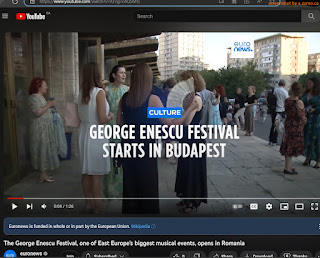Ukraine and Munich
Varianta în limba română pe FaṭăCarte Meta.
- Russian numbers stations are yet another way Putin trolls.. whomever bothers to listen.
- Munich: The Edge of War is an almost good movie that I liked probably more than its average viewer.
- The German – Czechoslovakian (Sudetenland) crisis of 1938 is eerily similar to the Russo-Ukrainian crisis of this decade.
Recently, another Russian numbers station came back from frozen silence. Are such stations (wiki-n) useful in the age of the Internet? I doubt it.
On Secret Agent, one of my fav free radio stations, one of the audio bits in-between songs (there’s a name for that but I forgot it) is in Romanian, from a movie: “Terminat – Terminat – Terminat”. There’s also the Russian numbers, as well as excerpts from James Bond movies: “My name is Plenty – But of course you are! / Plenty O’Toole / Named after you father, perhaps?”
I shouldn’t have to remind you that the dominant issue of the day is Putin’s warmongering at Ukraine’s border. There’s nothing I can do about that. It’s how I’d feel about WWII, had I been a contemporary of those times.
I try to only watch movies over 7 stars on IMDB. What keeps happening is I check a movie’s rating when it just comes out, and there are only a few votes, and the rating is comfortably over 7. I know that ratings typically decrease as more people (other than those who made it and their friends) watch and vote on it, but I can’t wait forever. So I start watching it, and as I get to a cringe moment, I wonder how is 7 possible? I check again and indeed, it dropped below 7. Horrifying! I can’t waste my time on mediocre movies. But I’m also curious and have this feeling of unfinished business. So I finish watching it.
I know there’s such a thing as Rotten Tomatoes, but I’m an old mangod; I let millennials and those who think they are play over there.
One such movie was Munich – The Edge of War (currently 6.9 w/ 8.1K votes). I didn’t like the character development, it felt like they were unfinished (yep! that word again), but I do like history and the opportunity to be transported back to that era. I also like the atmosphere depicted by the movie – there’s not much time to think, you have to act, and your own survival, as well as that of those you love, is at stake. Unlike Transit (previously mentioned in DW documentary), the parallels to today are less obvious. Remembering Chamberlain and the Munich Agreement is something many have been doing as of late – Neville’s reputation took a dive after the war, but has found some resurgence as of late.
And, as usual, there are trade-offs. At Munich, a vague and illusory German resistance does not want the accord to be signed, because the invasion of Sudetenland is more likely to awaken reason in German generals. In our times, Ukrainians do not want foreigners to leave Ukraine and believe that the 1000 or so Russian troops are insufficient for a full invasion and it’s just a bluff meant to drive Ukraine further into the ground. Opinions about Putin’s Gambit abound: he isn’t threatened by force but rather by the idea that countries escaping Russia’s hegemony and joining the European concert succeed or improve their lot, causing further disruption and dissent in his lager (i.e., neo-Soviet Gulag aka CIS). Biden can only play the cards he is dealt, fully knowing that evacuating his Ukrainian embassy or “giving permission for a minor incursion” in a press conference increase the chances of a Russian invasion, but then again, said invasion would better motivate allies to respond appropriately to Putin’s constant dicking around.
This “dark-side diplomacy” dilemma is perfectly exemplified by the Chamberlain’s game in the movie. And if you deep-dive Wikipedia on these issues, you might learn that it wasn’t just the Brits who had decrypted enemy communications, there was someone on the other side having done the same to the Brits.
I have a game as well. It’s called Red Alert 2, Yuri’s Revenge (cnc-ra2).
That being said, I like these tense, pre-war movies with their ominous but often insufficiently defined low-floating, omnipresent threat. The war movies of the 70s and 80s focused too much on actual fighting, wanting the viewer to identify with the some soldier or officer. (Yes, we also had paranoid psych thrillers such as x Days.., but those are based on the premise that you are actually willing to spend your time contemplating CIA/NSA BS.) Today we have games for that, anyone can play at will – and while I prefer RTS, most people prefer Call of Duty, which explains the price Microsoft paid for Activision (bmb-mscod).
Since that low hanging demand is fulfilled with games, history geeks such as myself can and should expect more psych thrillers presenting the drama of regular people and their regular lives in the midst of era-defining chaos, unwitting and unwilling heroes we can actually identify with.
Sources / More info: imdb-mteow, nflx-mteow, cnc-ra2, bmb-mscod, imdb-list




Comments
Post a Comment
Thank you for commenting. Please keep it sweet and civil. Puteti comenta in romana si pe Meta la fb.me/zamolxis or Twitter @zamoca